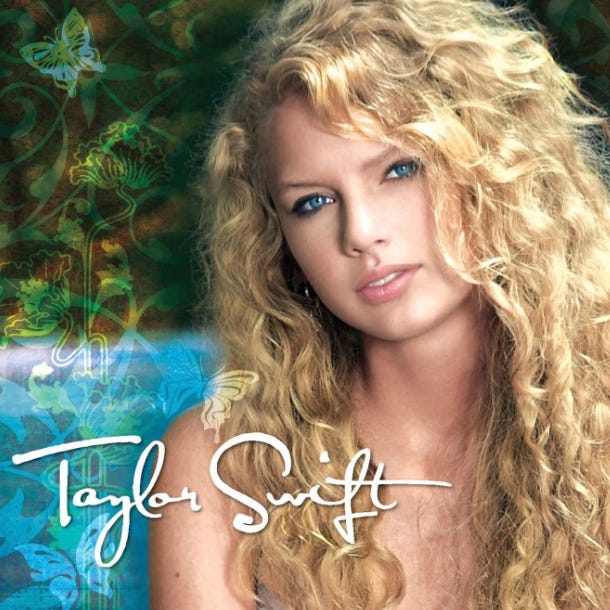The Tortured Poets Department Needs Renovation
The album was a good first draft but isn't final product material
Taylor Swift is fundamentally misunderstood; her fame’s impermeable to criticism; and she’s become untouchable. I fear the artistic leniency her fame affords her is affecting her quality of work. The Tortured Poets Department, released last Friday, April 19, 2024, feels like a first draft of what could’ve been an amazing album.
Like Amanda Petrusich in The New Yorker, I’m worried for Taylor Swift.
Any writer know’s that after writing your first draft, you need to let the words sit and cement. Once hardened, the cracks and ridges become apparent. When the inconsistencies are visible, you go back and smooth over your work. This process repeats until the finished product is ready.
I am a huge Taylor Swift fan. I respect her writing immensely, which is why I am disappointed in her recent work. I know she’s better than this.
In The Tortured Poets Department, many of her songs feel lazy. Like the lines:
“And my friends said it isn't right to be scared
Every day of a love affair
Every breath feels like rarest air
When you're not sure if he wants to be there”(from “I Hate it Here” on The Tortured Poets Department)
This is the same woman who wrote:
“I'd meet you where the spirit meets the bones
In a faith forgotten land
In from the snow
Your touch brought forth an incandescent glow
Tarnished but so grand”(from “Ivy” on Evermore)
What accounts for this difference?
Swift didn’t allow these songs enough time to marinate. She writes about her break up with Joe Alwyn, which happened last year, and alludes to the Eras tour, which is still on going.
Her wounds are fresh. Her lyrics read like tear-stained scribbles on a diary page, when one’s so blind to emotions that their words fall into cliché dramatics, like when a kid yells “I hate you!” at their mom. Those feelings are raw and honest but also fleeting and immature.
Some have labelled The Tortured Poets Department as “cringe.” Of course it is. Aren’t all of our emotion-splattered diaries cringe? That’s why they’re private. You write with fervor in the dead of night, and, when daylight comes, you smile sheepishly at the pages and quickly shove the journal under a mattress.
Although messy and immature, there’s still value in journal entries. The majority of great artists have made some sort of autobiographical work. For Swift, autobiographical work is most of her portfolio. But, when writing in a journal, your goal isn’t to create the most lyrically beautiful prose; it’s to purge yourself of intense feelings. Although grossly underdeveloped, the emotional truths in these entries are powerful. In the same vein, The Tortured Poets Department is lyrically unsatisfying but had immense potential.
The album craves refinement and was released prematurely. Swift needed to let her pain subside, gain perspective, before she could evaluate her art objectively and edit with the eye of a skilled songwriter, rather than with the understandably biased perspective of a person who’s just lost her six year long relationship.
As artists and writers, it’s a disservice to one’s creative intelligence to release an unfinished draft, stripping away the opportunity for one’s work to reach its fullest potential before subjecting it to public criticism.
Today, everything Swift touches turns to gold. But, even if your first draft can break records, it doesn’t mean you should release it. The Tortured Poets Department may be a commercial success, but it’s a creative mismanagement.
The half-baked nature of The Tortured Poets Department is a result of Swift’s exponential popularity combined with her “From the Vault” tracks. Her “From the Vault” tracks, released alongside her re-recorded albums, allow for songs once deemed unfit for the main album to see the light of day. While certainly a fun bonus for Swifties, these tracks have resulted in a broader loosening of her artistic standards, evident in The Tortured Poets Department. Many have said the album is too long and repetitive. I concur. Like any writer’s first draft, it needs to be pared down, tightened up and many of the songs should have been cut.
On social media, Swift writes “our tears become holy in the form of ink.” By assigning this line to her subpar album, Swift undermines her own artistic judgment and unintentionally inflates an egotistical public perception. She describes this album as if it is her magnum opus, seemingly lacking self-awareness. Swift has significantly more artistic potential than this album suggests, and it’s offensive to her own songwriting skills that she describes it with such glorifying rhetoric.
Amidst her unrefined work, there were a few gems which glittered at the album’s potential. In particular, I liked:
“But Daddy I Love Him”
“Who’s Afraid of Little Old Me”
“Guilty as Sin?”
The New Yorker describes the album as “Southern gothic,” and these tracks point to the impressive direction her “anthology” could’ve taken with a little more thought.
Taylor Swift’s struggle with peace and passion
I was introduced to Taylor Swift by my older brother. As a kid, I would listen to “Our Song” and “Fearless” on his iPod Touch as we drove home from family dinner parties. Back then, she was a global sensation but on a fathomable scale. Today, she’s reached such exorbitant fame that she has no peers. She is at the top of the music industry. She must be lonely.
Despite her success, it’s been heartbreaking watching her stardom journey. I maintain the position that she’s in a cursed profession, where talent often leads to loneliness. Entertainment seems to be the rare industry where following your passion can lead to professional success and personal demise.
Swift is often criticized for her combative approach to love, as she demonizes the men she’s dated. But, critics rarely probe at why she’s so angry. I don’t believe this is the life she wanted. She’s been forced into the role of “scorned woman” into “forsaken wife,” not by her own doing, but rather by her successful career.
It’s not fair to ask her to give up her career for peace. It’s equally a lot to ask of her partners to subject themselves to the hardships of her stardom. Subsequently, she’s stuck in a wretched stalemate.
When you look back at her 2006 eponymous debut album, there’s a pervasive tone of unadulterated innocence. A youthful belief in true love. Her songs were about marriage and soulmates. They weren’t about becoming a celebrity or becoming the backhanded term “career woman” or “girlboss.” In “The Prophecy” from The Tortured Poets Department, she explicitly writes “Don’t want money, just somebody to keep me company.”
Swift’s struggle with stardom is a running through line in all of her music, look at “The Lucky One” from Red or “peace” from Folklore. The insidious nature of fame, an unavoidable byproduct of her talented songwriting, snatches away her ability to build genuine relationships, and she’s rightfully resentful about that.
She’s torn between peace and passion. She’s caught in a Catch-22. Swift can’t be happy without song-writing but struggles to find peace unless she gives it up.
With her growing fame, her identity as a music icon increasingly usurps possibilities of peace. Yet, she refuses to fall prisoner to the cage of success, instead choosing to find empowerment in her constraints, leaning into her fame rather than shying away from it.
Even as she continually finds herself, trying on new identities and shifting into new eras, I hope she doesn’t lose sight of her creative integrity.
I maintain that Evermore and Folklore were Swift’s best albums because she pushed herself artistically. Those albums weren’t trying to prove their worth. They were out of her comfort zone, subtle, and quite unexpected. Those two albums were Swift’s true “tortured poetry.” The quality of her work spoke for itself, and her lyrics indeed read like poetry. Notably, those were also the two albums where she didn’t write explicitly about herself.
Maybe writing about her own life holds Swift back. Writing about herself has been Swift’s brand for almost two decades, but maybe it’s time to take new risks. Coming from personal experience, as someone who drives herself crazy thinking about her future, sometimes writing about someone else, writing about fictional characters, acts as a break from my thought spirals. Perhaps if Swift looks for creative inspiration outside of her life, she may find the freedom to push her artistic expression to new heights.
As Swift continues to search for her place in the world, I continue to admire her for her dedication to songwriting. Her passion is undeniable, and, although her marketing team sometimes portrays otherwise, nobody can doubt that Swift writes music, not to turn a profit, but because she loves her art form. Look at how much she’s already sacrificed for it. Swift’s genuine passion for music and songwriting makes me proud to call myself one of her fans.






